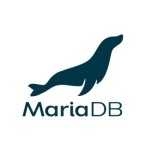We find the Microsoft SQL Server affordable compared to its real competitors.
We find it easy to manage.
It offers a very robust infrastructure for us.
The solution is easy to set up.
We have found the stability to be good.
We've had a good experience with technical support. They are helpful.
We may use different levels of SQL Server when it comes to licensing. We have some Enterprise and some Standard services. They can improve the recovery processes of the replication or disaster recovery scenarios for the lower-tiered version, such as the Standard server.
While we have many options in Enterprise, it's expensive for most companies.
The configuration process can be a little complex.
Technical support can take a while to respond in Turkey.
The solution may be better with some integration with some factory cloud software. With the standard version, the lodgement process is never enough. We are replicating near real-time to make recovery easy and to make all the RPO targets as expected.
You cannot recover SQL Servers, especially for big financial companies like ours. It's not easy to erect SQL Servers on any other site, and with an acceptable data loss in the foundations.
Personally, I have used the solution for about 15 years at this point. It's well over a decade. I've used it for a while.
The stability has been great. There are no bugs or glitches. It doesn't crash or freeze. it's reliable.
The Microsoft team never responds fast in Turkey. I cannot say they are fast. Unless you have some Enterprise agreement, they're not quick. However, I find that when I deal with the same technician a few times, they are quite good and very helpful. They are very capable. They know what they are talking about.
We also use Oracle Servers.
The initial implementation is easy and straightforward. It's not overly complex or difficult to set up.
However, it's not just the server we have to set up. We have a cluster environment. Mostly it's just, click, click, click and you are done, however, the configuration process is a bit more difficult. Adjusting performance levels, in particular, can be a real challenge.
The enterprise version of the solution is very expensive and most companies would likely find that they wouldn't be able to afford it.
We're a customer and an end-user.
I'd rate the solution at a nine out of ten. We've been very happy with its capabilities.
I would recommend the solution, however, it will only be effective if the company hires an effective administrator. While there are default settings, you will likely need to configure quite a bit and connect most of your hardware in the correct way. To be effective, it really needs to be tuned by a professional.














